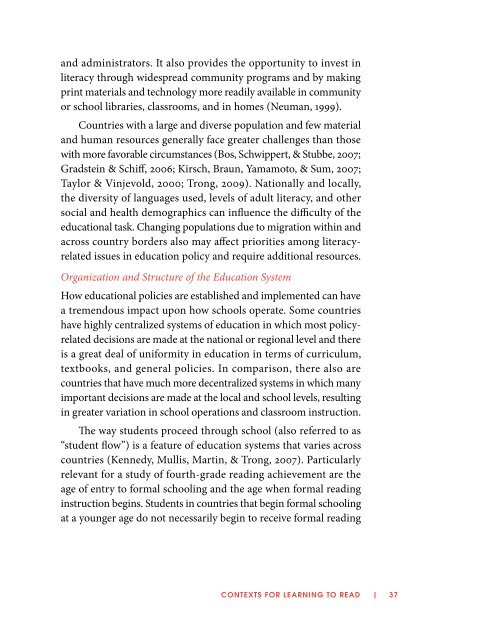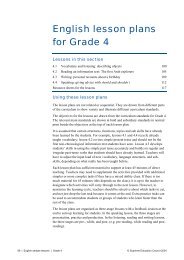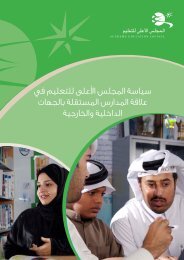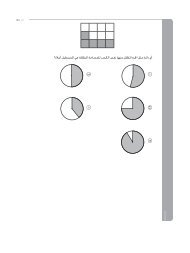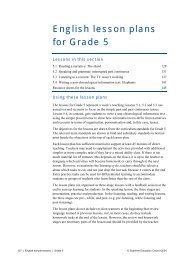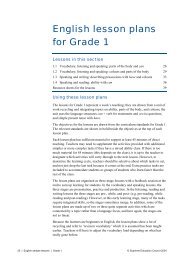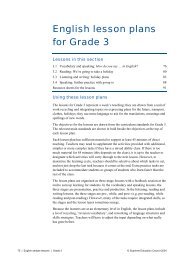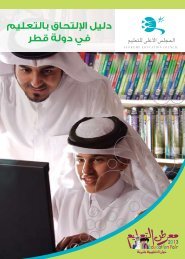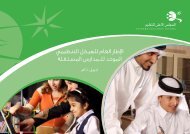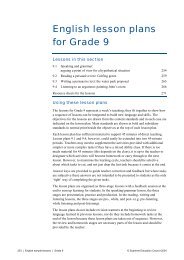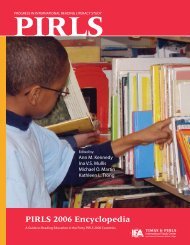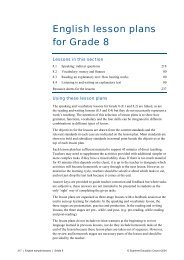PIRLS 2011 Assessment Framework - Proj AVI
PIRLS 2011 Assessment Framework - Proj AVI
PIRLS 2011 Assessment Framework - Proj AVI
- No tags were found...
You also want an ePaper? Increase the reach of your titles
YUMPU automatically turns print PDFs into web optimized ePapers that Google loves.
and administrators. It also provides the opportunity to invest inliteracy through widespread community programs and by makingprint materials and technology more readily available in communityor school libraries, classrooms, and in homes (Neuman, 1999).Countries with a large and diverse population and few materialand human resources generally face greater challenges than thosewith more favorable circumstances (Bos, Schwippert, & Stubbe, 2007;Gradstein & Schiff, 2006; Kirsch, Braun, Yamamoto, & Sum, 2007;Taylor & Vinjevold, 2000; Trong, 2009). Nationally and locally,the diversity of languages used, levels of adult literacy, and othersocial and health demographics can influence the difficulty of theeducational task. Changing populations due to migration within andacross country borders also may affect priorities among literacyrelatedissues in education policy and require additional resources.Organization and Structure of the Education SystemHow educational policies are established and implemented can havea tremendous impact upon how schools operate. Some countrieshave highly centralized systems of education in which most policyrelateddecisions are made at the national or regional level and thereis a great deal of uniformity in education in terms of curriculum,textbooks, and general policies. In comparison, there also arecountries that have much more decentralized systems in which manyimportant decisions are made at the local and school levels, resultingin greater variation in school operations and classroom instruction.The way students proceed through school (also referred to as“student flow”) is a feature of education systems that varies acrosscountries (Kennedy, Mullis, Martin, & Trong, 2007). Particularlyrelevant for a study of fourth-grade reading achievement are theage of entry to formal schooling and the age when formal readinginstruction begins. Students in countries that begin formal schoolingat a younger age do not necessarily begin to receive formal readingContexts for Learning to Read | 37


